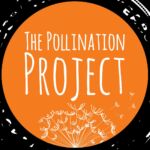99.9% of the western population of monarch butterflies has declined from the 1980s to 2021, IUCN.
“We have to take care of all creatures, even the smallest ones. We have to take care of the world that was given to us,” Lorie Ball, New Hampshire State Representative and President of the Salem Friendship and Garden Club.
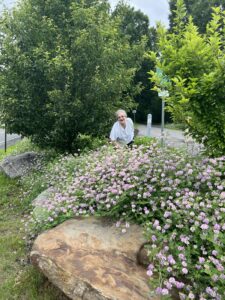 We are the memories that we leave with the people we have met throughout our lives, the joy and learning we have inspired, and the friendships we have created along the way. For Lorie Ball her work to help the declining population of pollinators in New Hampshire is part of her legacy, and like the famous Danish poet and writer once said: “Just living is not enough… one must have sunshine, freedom, and a little flower.”
We are the memories that we leave with the people we have met throughout our lives, the joy and learning we have inspired, and the friendships we have created along the way. For Lorie Ball her work to help the declining population of pollinators in New Hampshire is part of her legacy, and like the famous Danish poet and writer once said: “Just living is not enough… one must have sunshine, freedom, and a little flower.”
Lorie is an education advocate, a retired special education teacher and a State Representative from Salem, New Hampshire. She was born in New York, raised in Connecticut, and has lived in New Hampshire for the last 34 years. Lorie graduated Summa Cum Laude from Rivier University with a Master of Education in Emotional and Behavioral Disabilities and was certified as a Reading and Writing Specialist who worked for 12 years with children from grades 5th to 8th.
Lorie enjoys being involved in her community activities which include: volunteer work, being a member of several clubs like the Salem Lion Club, the Greater Salem Rotary Club, the Friends of Salem Bike-Ped Corridor, the Friends of Salem Recreation, and more. Last year, while she was the Treasurer of the Salem Area Women’s Club, she met Linda Harvey, the Chairperson of the Environment Committee, and that sparked both a friendship and an interest in creating more spaces for the pollinators in their town.
“Linda started working on the Salem Rail Trail project in 1998 – it was her dream to create a linear park and I offered to help her,” says Lorie. “I met Linda at the trail — the task was to remove Crown Vetch that had overtaken one of the gardens along the trail. At this point, the Crown Vetch was almost as tall as us. We worked all day… pulling and pulling. During our water breaks, we really got to know each other. Despite our differences in how we were raised, our age, and our life experiences, we just clicked. Linda is a wealth of knowledge when it comes to the environment and conservation. She told me about her concern regarding the decreasing number of bees and butterflies. As I listened to her, I began to understand how important it was that we work together to do what we can to increase pollinator gardens in our town. That’s when our conversation turned to needing more volunteers.”
The Decline of Pollinators in New Hampshire
The population of pollinator insects is in decline in New Hampshire as well as in North America because of the use of pesticides, habitat loss, climate change, invasive species, and loss of native plants. Some of the most affected pollinators are the monarch butterfly and the American bumble bee, according to New Hampshire Fish and Game Department.
In July 2022, the International Union for Conservation of Nature announced that the migratory monarch butterfly had entered the IUCN Red List of Threatened Species as Endangered due to the decline of its population between 22% and 72% in the last ten years.
Furthermore, according to the IUCN, there has been a dramatic decline in the western population of the migratory monarch butterfly going from 10 million insects to only 1,914 butterflies between the 1980s and 2021, which represents a decline of 99.9%. The eastern population of the migratory monarch butterfly also had a drastic decrease of its population by 84% from 1996 to 2014. By 2023, the IUCN labeled this species as Vulnerable but the main causes of its decline remain, such as climate change, deforestation, and the use of pesticides.
The American bumble bee is another pollinator that entered the IUCN Red List of Threatened Species in 2014 and remains as Vulnerable. Although it is common in the southern Midwest and the southern US, a study couldn’t find this species in the northern and eastern parts of the country in 2011, a place where they used to be historically located.
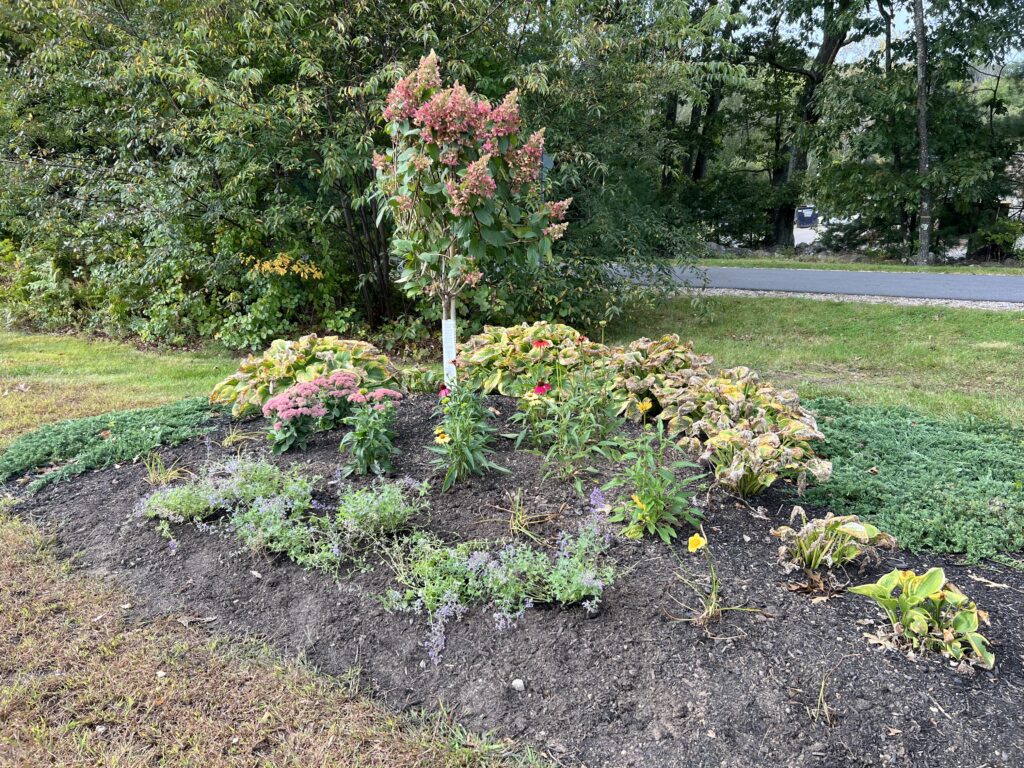
Salem Friendship and Garden Club
In 1954, the Salem Garden Club was created, but during the Covid pandemic, it shut down because of the lack of members.
“Linda and I started thinking that we really should get the Garden Club going again because we really should work on these pollinators,” remembers Lorie. “So we ended up starting the Salem Friendship and Garden Club. We got three other people, we formed a board, we filed all of our paperwork, and in October we opened.”
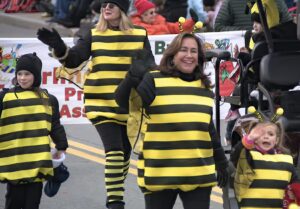 A few months later, the Salem Friendship and Garden Club had 40 members, who range between 40 to 80 years old.
A few months later, the Salem Friendship and Garden Club had 40 members, who range between 40 to 80 years old.
“Our Club’s overall goal is to beautify our town through the use of flowers that not only create beauty but also provide butterflies and bees the food and habitat they need to survive,” explains Lorie. “Once we restructured the club, we began putting a plan together on how we would increase pollinator gardens within our town. As a member of the Salem Conservation Commission, Linda had connections in the town, so we started there. Linda and I spoke to many well-established, prominent members of the Salem community. With their help, we identified three areas in the town that needed revitalization: The entrance to the Salem Town Forest, the large open area within the Salem Town Forest, and Abnaki Park entrance which includes a garden originally planted by the Salem Garden Club in 1964.”
Native Flowers Are the Answer
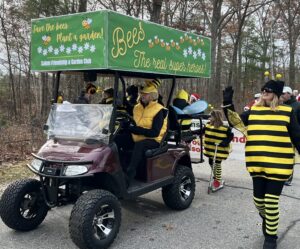 Some of the things that individuals can do to help the pollinators are to minimize the use of pesticides that can harm plants and insects as well as create a garden that can be a pollinator’s habitat and use native species of flowers that can feed them, as well as avoid exotic invasive plants, according to the New Hampshire Fish and Game Department.
Some of the things that individuals can do to help the pollinators are to minimize the use of pesticides that can harm plants and insects as well as create a garden that can be a pollinator’s habitat and use native species of flowers that can feed them, as well as avoid exotic invasive plants, according to the New Hampshire Fish and Game Department.
This inspired Lorie to not only beautify her town’s landscape but to create sustainable gardens that would help save and preserve the pollinators in New Hampshire through a 20-feet walkway, a 10-feet circle, and a 10-by-5 area using native flowers like Catmint, Salvia, Coneflower, Astilbe, Liatris, Lavender, Butterfly Weed, Sedum, and Nantucket Daisy, among others.
The town of Salem will supply the soil and mulch as needed. To buy the flowers, Lorie looked for funding and came across The Pollination Project.
“Another organization in town told me about how to find the grants and then I came across The Pollination Project online. I was surprised that they were so aligned with our purpose,” says Lorie. “I applied and were all very excited to know we were going to receive the grant because it is an essential part of this project. We are very grateful and happy”.
Lorie and the Salem Friendship and Garden Club will have their first fundraising activity on June 1st and they plan to be working on the gardens by late Spring or early Summer which will also provide education to the public on the importance of the pollinators and the plants that can help them survive.
“We strongly believe in this effort and look to educate the public on the importance of creating pollinator gardens,” says Lorie. “The gardens we create will have information plaques to ensure residents understand the importance of pollinator gardens. To this end, we participated in our town’s 2023 Holiday (Super Heroes themed) Parade — Our float had banners stating: “Bees — The real Super Heroes” and “Save the Bees, Plant a Garden”. Members of the Club walked the parade route dressed in bumble bee costumes.”
By cultivating flowers and friendships, the Salem Friendship and Garden Club aims to help pollinators in New Hampshire and motivate the community to enjoy their natural surroundings while taking care of the environment.
“One of the objectives is for the beautification of our town is to encourage people to go to the town forest, to utilize the town forest and to enjoy, making sure that there is enough and the right food and shelter for pollinators and to educate the public on the importance of the pollinators in our food system and environment,” says Lorie.
Join Us
If you are inspired by this work and have an idea for a project that addresses an issue that you are passionate about, we’d like to invite you to submit an application and together we will build a better, more compassionate future!
If you would like to support the work of more heartivists like this around the world, please visit our donation page and be a part of the change today!

